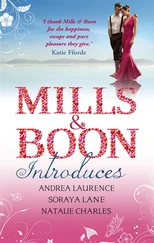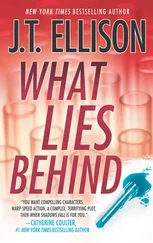‘No, nothing else,’ said Serena, and Dora went off, very pert, for her evening. Serena heard them giggling as they went under her window and hoped they were not heading for trouble. Dora had always been a good, well-behaved girl, but Hetty was apt to be flighty, there was no denying it.
After the first few weeks, Serena and Colm, by tacit agreement, kept to their own part of the manor; Colm with his books and his memories and ghosts in the west wing, Serena in the east wing. Really, it was better that way; conversation at meals could be so tiring and Serena had noticed Colm looking at the wine and brandy decanters, which Flagg now placed at her hand without being asked. It was nothing whatsoever to do with Colm if she took a glass or two of good wine with her lunch and dinner, or if she enjoyed a little brandy after her food. Brandy was good for the digestion, everyone knew that.
Sometimes she thought the disease was not progressing at all; sometimes she even thought it was retreating. But then a morning would come when the unforgiving sunlight poured into the rooms and she was forced to hunt out the shawls and veils to wear, or to lie in sick despair on her bed, her skin on fire, her bones in grinding agony.
And every day the child Julius had forced on her, that black knot of disease inside her body, grew a little bigger and a little stronger. I hate you, said Serena to the child. Why couldn’t you have died that day with your twin? Why can’t you die now, before you’re born? The words whispered inside her head like a secret echo. Die before you’re born… Die before you’re born…
At some point, the whisper changed to, I’ll make sure you die before you’re born…
The scullery at Cadence Manor was, as Mrs Flagg often said, a gloomy old place.
‘Dismal from floor to ceiling, and always has been, and how I’m to make a meal fit to send to table on this rusting old stove is a mystery.’
They were just sitting down to their midday dinner – a good leg of roast pork it was, and for once the Crossley woman had unbent sufficiently to help out. Flagg was serving himself apple sauce, when there was a cry from the main hall, following by a bumping tumble.
‘Sounds like the mistress,’ said Flagg. ‘Taken a fall, that’s my bet. We’d best see what’s happened.’
What had happened was that Lady Cadence, poor soul, stumbling around in the dim, curtained hall, had tripped at the head of the stairs and gone headlong down to the half-landing. The sound even brought Mr Colm from his part of the house, spectacles pushed up onto his forehead, his hair rumpled round his head like an astonished baby.
Lady Cadence was lying a bit twisted, saying weakly she did not know how it had happened; she had been coming down to the dining room, and she must have stumbled over that bit of rug at the top of the stairs.
Miss Crossley was dispatched to send a message to the local doctor to come up to the manor at once, while Hetty and Dora carried the poor mistress to her bed, with Flagg and Mr Colm in anxious attendance.
Later in the servants’ room they all agreed it was fortunate that all madam had suffered was a sprained ankle. With the child due to be born so soon it was a miracle she had not done some irreparable damage to it.
Miss Crossley told Hetty to make sure no dangerous bits of rug were left lying around for folk to trip over, and when Hetty declared hotly that she had not left no rug nowhere, Miss Crossley warned Mrs Flagg the lower servants were becoming impudent.
The news that Sir Julius had died in a heathen country nobody had heard of reached Cadence Hall shortly after Christmas. Lady Cadence had a letter telling the news, and asked Flagg to let the servants know.
There had been some sort of funeral service. For once Mrs Flagg and Miss Crossley were united in hoping it had been a proper Christian burial because you never knew what might go on in those outlandish places. Mr Crispian’s letter had asked if a memorial service could be arranged at St Anselm’s, so Flagg was sent down to the village to ask the vicar please to come up to the manor to discuss this.
The service took place in early January and they all attended it except Miss Crossley, who had to stay behind with Lady Cadence. Madam would have liked to go, said the Crosspatch, but of course the icy weather made it inadvisable in her condition. Dr Martlet, who had travelled down from London, said there was no question of her attending, even though St Anselm’s was only a five-minute drive into the village. Lady Cadence must stay in the house on her bed, he said firmly.
She stayed there until the birth of the child a few weeks later. It was a boy, and everyone was very thankful that he seemed sound and whole. A child torn from its twin in the womb, and whose mother had tumbled down the stairs only a few weeks earlier, might have been damaged in some unthinkable way.
* * *
Serena named the child Saul, for no other reason than that she thought the name unusual and pleasant, and he was christened at St Anselm’s on an early spring day with crocuses starring the fields.
Recovering slowly from the birth, Serena had the feeling that Saul hated her. He cried when she went near him, and struggled if she tried to feed him. Dora, who had brothers and sisters, took over his care, along with a village girl engaged by Miss Crossley. Serena was aware of guilty relief that she need have very little to do with him. Sometimes she thought Saul, even at this age, had a deep sense of loss that he could not understand – a loss for the small barely formed little thing that had not survived. When he cried it seemed to her there was an uncontrolled and frustrated fury in the sounds.
But Dr Martlet told her Saul was healthy and sound. There were no signs of him having inherited the disease both his parents had suffered from, he said firmly.
Serena believed him until one bright May afternoon when sunlight streamed into the nursery and she saw, for the first time, the faint tracery of scars around Saul’s mouth.
Jamie Cadence’s Journal
There’s no point pretending I behaved well during those weeks in Edirne when the food supplies were so low. Everyone around me thought I was wonderful, but actually I was behaving appallingly. I was selfish and self-centred, and I used my mutilation shamelessly to make sure I got the best of the food there was – and there wasn’t much of it for anyone. The Pasha’s men stood guard over the stores, and people subsisted on handfuls of rice and bowls of some liquid concoction I believe contained boiled-up vegetables – mostly onions, from the smell of it.
But I was an invalid, a victim of misguided hatred, and everyone was sorry for me. I was given the best of everything.
The days blurred into one another. My mouth was healing; sometimes I still spat blood but that lessened as the weeks went by. The pain was much easier as well, although I didn’t let them know that. I gave a performance of a man nightly suffering the torments of the damned.
But there’s one day I’ll always remember and that was the day I demanded a mirror. They made excuses at first, pretending there were no mirrors to be found, saying they had forgotten and would bring one later. But in the end they gave in.
I have a half-memory of someone – I think it was Gil – surreptitiously turning down the oil lamp. He might as well not have bothered, because let’s not pretend about this: I was deformed. There’s no other word for it. There were – and are – appalling scars round my mouth and although most of the torn flesh had healed, even then, it had done so lumpishly, twisting my mouth into something dreadfully close to a snarl. For several appalling moments, in the erratic light of the oil lamp, it was as something from one of the ancient grisly fables of the world’s dark ages stared out at me from the glass – or a mistake, occasionally made by nature, such as can sometimes be seen shambling pitiably through freak sideshows…
Читать дальше












